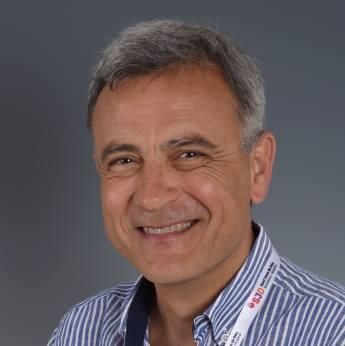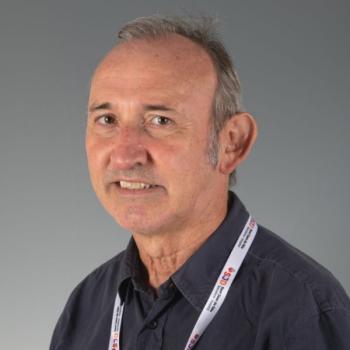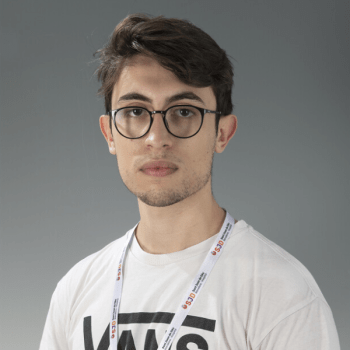
We are the specialists that child, youth and women athletes need to do sport safely and healthily. We also attend adult athletes older than 18 years.
SJD Barcelona Children's Hospital and Barcelona Hospital Clínic have joined forces to create a new Unit of Sports Medicine in the city of Barcelona.
The Clínic-SJD Unit of Sports Medicine is a private unit, the only of its kind in Barcelona, where we offer specialised care to adults, youth and children who do sports at school, amateur or professional level.
We have specialists with great experience in monitoring and treating athletes at organisations such as FC Barcelona.
In addition, the Unit has the support of two large centres in the field of healthcare, such as the Hospital Clínic and the Sant Joan de Déu Hospital Barcelona, in Cardiology, Traumatology, Endocrinology, Immunoallergy, and more.
We have state-of-the-art diagnosis and treatment techniques that are constantly being updated, which allows us to provide the best service in Sports Medicine.
Who we attend
We attend federated athletes, school athletes, recreational athletes, active people with special needs and patients referred from specialists.
Specialties
We provide knowledge and comprehensive solutions in team sports, running, dance, skateboarding, cycling, skating, martial arts and other disciplines.
We are specialists in advising women on the practice of sport throughout the different stages of her life (adolescence, pregnancy, postpartum, etc.), as well as in the case of children and adolescents with illnesses such as asthma or diabetes.
Certifies sports aptitude and rules out contraindications to doing sports. It is a health exam that serves to detect health risk factors in relation to doing sports.
Sports medical check-up
Certifies sports aptitude and rules out contraindications to doing sports. It is a health exam that serves to detect health risk factors in relation to doing sports.
There are three levels of sports medical check-up. The first level is a general check-up which includes the following:
- Assessment of medical and sports history.
- Cardiorespiratory and musculoskeletal physical examination.
- Electrocardiogram at rest.
- Certificate of fitness to do sports, useful for federated sports and certain recreational competitions.
A sports medical examination results in the sports fitness medical certificate, which is mandatory for federated children and young people at the start of the season in many sports.
We also carry out specific medical check-ups with an indirect stress test (level 2) and medical checks with gas stress test (level 3).
- For whom is it indicated and when to do a sports medical exam: It is recommended that all children, young people and adults who play sports, federated or not, undergo a sports medical check-up at least once a season.
- How long the sports fitness medical check-up takes: The duration of the sports fitness medical check-up is about 20 minutes, although the consultation can be extended, adapting to the advisory needs of the athlete.
Optimises sports performance by evaluating the state of health in situations of physical exertion.
Stress test
Optimises sports performance by evaluating the state of health in situations of physical exertion.
The stress test, also called ergometry, is a health diagnostic tool that serves to prevent injuries and rule out risk factors and latent diseases that contraindicate doing sport.
Indirect stress test
Includes:
- Assessment of medical and sports history.
- Cardiorespiratory and musculoskeletal physical examination.
- Electrocardiogram at rest and during physical exertion.
- Indirect ergometry: stress test on a treadmill or stationary bicycle, according to medical criteria.
- Medical report.
- Medical certificate for specific tests or for the practice of federated sports, if the patient requests it.
The indirect stress test is part of the level 2 sports medical examination, designed for all types of athletes.
Gas stress test or ergospirometry
Includes:
- Assessment of medical and sports history.
- Cardiorespiratory and musculoskeletal physical examination.
- Electrocardiogram at rest and during physical exertion.
- Direct ergometry: stress test on a treadmill or stationary bicycle, according to medical criteria, evaluating cardiorespiratory and metabolic parameters.
- Medical report.
- Medical certificate for specific tests or for the practice of federated sports, if the patient requests it.
The gas stress test is performed as part of the level 3 sports medical examination, designed for high-performance and professional athletes.
What a stress test is used for
A stress test can:
- Diagnose pathologies susceptible to treatment and undetected diseases or those that do not present symptoms.
- Identify musculoskeletal disorders, especially injuries that have not been properly rehabilitated, and design a therapy plan.
- Guide the athlete on what activities they can or should do to preserve their health and improve their sports performance.
- Advise the athlete in planning their training to optimise their sports performance.
What a stress test consists of
Indirect or direct ergometry consists of monitoring cardiorespiratory constants while the athlete exercise on a treadmill or a stationary bicycle.
Adhesive electrodes are placed on the athlete's chest and connected to an ECG monitor to track heart activity in real time during the stress test.
The test begins at rest and continues with physical activity, first at a gentle speed, which increases until reaching the maximum level of effort.
In the case of direct ergometry, a gas analysis is also performed, for which the athlete wears a mask connected to a gas analyser. With this, it is possible to assess the gaseous exchange under physical exertion and to know the capacity that the individual has to adapt to the different levels of effort required.
During the stress test, the lactate levels generated by the athlete's metabolism can also be recorded, to assess the body's response under conditions of certain workloads. This is done at the doctor's discretion or at the request of the patient.
Our specialists will assess the previous reports provided by the athlete and will be able to adapt the stress test to their needs.
How long the stress test lasts
The total duration of the visit is around 60 minutes. The stress test does not have a pre-established duration, since we adapt to each athlete and their capabilities.
How the patient should come to the visit
The patient should wear comfortable clothes, ones he/she normally exercises in, as well as sports shoes. Our facilities have a changing room and showers.
Need for prior preparation or aftercare
It is best to go to the stress test between an hour and a half and two hours after one's last meal and not right after a training session or test.
Who a stress test is indicated for and when to have one
The stress test is indicated for athletes of any level, as well as for people who do not play sports regularly but who may be at risk of suffering a cardiac event.
In the case of athletes, it is especially indicated at the start of the season, prior to a competition and to plan one's training.
It is recommended for people taking up a sport to carry out a stress test.
As a result of a stress test, secondary visits could be planned.
We help the athlete to improve their diet and customise it to their training workload.
Sports nutrition
We help the athlete to improve their diet and customise it to their training workload.
Nutrition plays a fundamental role for adults, young people and children practising sport, at any discipline or level (amateur, semi-professional or professional).
Improve your health and personal performance
Sports nutrition provides direction and clarification in situations such as:
- Adapting an athlete's diet to their training workload
- Planning a balanced diet
- Getting ready for competitions
- Recovering after physical exertion
- Improving sports performance
- Making drastic changes in normal training routines
- Gaining muscle mass
- Losing body fat
- Planning hydration guidelines
- Receiving sport supplement consulting
- Starting a vegetarian, vegan or flexitarian diet
- Digestive problems or lack of energy
- Recovery from injuries
- Restarting normal menstrual function
Personalised nutritional guidelines
At the Sports Medicine Unit we provide individualised attention to the nutritional needs of the athlete to design a custom nutritional guideline adjusted to their personal reality, according to:
- Age
- Type of sport/modality
- Athletic level (beginner, amateur, professional)
- Degree of physical activity: duration, intensity, recovery
- Body make-up of the athlete (level of fat and muscle mass)
- The athlete's goals
- Point in the season: training, competition, transition or recovery
- Phase of competition (before, during and after)
- Training schedules
- Intolerances, allergies and dietary habits
- Lifestyles: time, schedules and availability
- Presence of pathologies
- Advice on how to choose sports shoes
Change your nutritional habits
You can change your eating habits through a sports nutrition consulting, depending on your sporting discipline and your needs as an athlete.
Evaluation of the athlete and goals
In the first session, we collect all the information and documentation that the athlete should provide:
- Training plan.
- Weekly record of all meals and food eaten throughout a week.
- Analyses from the last six months.
- Recent stress test or one from the previous season.
We also take your body measurements using anthropometry and/or bioimpedance.
Planning a personalised nutritional guideline
We give you the personalised nutritional guideline explained in detail. We also establish a schedule for follow-up visits.
Follow-up and resolving issues
Finally, we observe the progress made and, if necessary, we review the initial nutritional guideline, resolving all your doubts about nutrition and sports.
High-performance nutritional consulting
We can accompany you at the key moments of your training by closely monitoring your diet plan, especially in certain sports, when preparing important or more complex competitions and races, such as an UltraTrail, in case drastic changes need to be made in training and when there is a need for supplements.
Exercise helps us stay in shape for as long as possible and have the healthiest lifestyle possible.
Physical therapies for health
Exercise helps us stay in shape for as long as possible and have the healthiest lifestyle possible.
Through targeted fitness routines and safe, proper practice, we can prevent and/or reduce our risk of disease. At the Sports Medicine Department, we offer:
Prescribed exercise routines
A customised weekly exercise plan:
- Adapted to the patient’s physical conditioning needs and goals.
- To improve how various diseases diagnosed by healthcare staff progress and evolve.
- Physical therapy and reconditioning sessions after injury.
First visit
- Establish goals and healthy habits
- Measuring and reviewing physical parameters (Strength, balance, etc.).
- Initial indications to start physical activity.
Following sessions
- Weekly follow-up of routines and adjustment according to patient feedback.
- Measuring, assessing and comparing health parameters (strength, balance, etc.).
Physical therapies for health are aimed at:
- People who want to acquire healthy habits and increase their daily physical activity levels, with or without an underlying disease.
- People with a disease or condition who want to improve their health and quality of life by using physical activity as a therapeutic tool.
Medical advice to the athlete, both on their physical or health condition and in the event of possible injuries.
Injuries: Consultation and second opinion
Medical advice to the athlete, both on their physical or health condition and in the event of possible injuries.
Attending to an athlete's pathology requires a medical consultation. Depending on the results of this consultation, additional tests or treatments may be necessary.
Own diagnostic methods (soft tissue ultrasound) and/or online methods can be used to complete diagnoses (imaging and laboratory), treatments with regenerative therapy, interventional ultrasound, rehabilitation or surgery if necessary.
Consists of:
- Initial visit.
- Exploration based on the consultation and individual needs.
We accompany women along the different stages of her life, through sport.
Women and Sport
We accompany women along the different stages of her life, through sport.
Over the years, and due to their physiology, women's bodies undergo changes largely linked to hormonal variations. At any age, doing sport can help assimilate these changes, since the role of exercise is vital during all female life stages.
Due to our being a maternity and children's hospital, through the Clínic-SJD Sports Medicine Unit we accompany and advise women who do sports or who wish to stay active during the different stages of their lives. This is especially true in adolescence and pregnancy, when doing sport in a healthy manner can help assimilate the changes that are experienced.
Adolescence
Adolescence is a very important moment of change. A woman's body is undergoing constant reshaping and exercise can play a fundamental role in this stage.
However, it is not always easy to adapt the practice of physical activity to these changes. Therefore, doubts may arise, such as what the most appropriate sport for this stage may be, or what the implications of menstruation are.
Our specialists offer both young women and their parents medical advice and recommendations, so that exercise becomes a source of health benefits, not only at this stage, but also in the future.
Pregnancy and post-partum
The scientific community has come to understand that moderate exercise during pregnancy is beneficial for both the mother and the foetus. At the Clínic-SJD Sports Medicine Unit, we offer medical visits, consultations and advice, to help and guide women in the practice of physical activity during pregnancy and post-partum.
Menopause
For many women this is a complex time in their lives. Changes are once again taking centre stage, both physically and mentally. Around the age of 50-55, menstruation stops and this physiological circumstance, determined by alterations in the levels of female hormones, forces women to take on changes that are not always easy. Keeping active, finding the most suitable exercise or sport, accompanied by a correct diet, will help to improve health.
Over the course of her life, a woman's body goes through changes often linked to hormonal changes. Supervised physical activity that is personalised to the individual's stage of pregnancy is going to improve both physical and mental quality of life.
Pregnancy and post-partum
Over the course of her life, a woman's body goes through changes often linked to hormonal changes. Supervised physical activity that is personalised to the individual's stage of pregnancy is going to improve both physical and mental quality of life.
In recent years—the last decade in particular—the scientific community has supported the idea that physical exercise during pregnancy is beneficial for both mother and child. Training during pregnancy can help you to ease or even prevent typical pregnancy ailments, such as back pain, pelvic pain and cramps, among others. It can also help to reduce the risk of gestational diabetes, preeclampsia, premature labour or miscarriage.
If you never used to do exercise before getting pregnant, or your lifestyle has been largely sedentary, starting an exercise routine during your pregnancy is an excellent way of developing good habits and encouraging a healthy lifestyle.
However, if you already have experience in sport, it is equally important to continue practicing while pregnant to maintain your physical condition.
Physical exercise and staying active during this specific period of time will help you feel better, be more physically prepared for birth and it will also help you to recover faster afterwards.
Pregnancy is a very special time in a woman's life, so we must ensure that she is in optimal condition to practice sport. Prior approval from your gynecologist is essential.
At the Clínic-SJD Sports Medicine Department, we offer medical visits, consultations and assessments to help and support you in your sporting and physical activity endeavours during this crucial time.
Whether you are starting to do sports on a regular basis or if you already do sports intensely, it is recommended that a sports podiatrist carry out a biomechanical study of your gait.
Sports chiropody
Whether you are starting to do sports on a regular basis or if you already do sports intensely, it is recommended that a sports podiatrist carry out a biomechanical study of your gait.
At the Clínic-SJD Sports Medicine Unit, we are specialists in assessing athletic movements in adults, teens and children, attending to the needs of each person, sport and category, to:
- Prevent sports injuries derived from the structure of the foot and leg.
- Improve sports performance.
An improper way of stepping has a direct impact on the foot, because it is the area of the body that endures the most stress when doing sport, but it also affects the rest of the musculoskeletal system. A wrong athletic movement in the gait can affect the ankles, knees, hips and back, causing injuries, pain and limitations to sports performance.
Biomechanical study of your gait
One of the best ways to treat a possible alteration in the foot and prevent injuries in adults, young people and children who do sports is by carrying out a biomechanical study of the gait before our body warns us with pain.
The biomechanical study of the gait is used to determine the causes that can cause overload the foot and to diagnose if your way of stepping is a risk factor for future sports injuries.
At the Clínic-SJD Sports Medicine Unit, we use the latest technologies to yield a high-precision diagnosis.
Includes:
- Analysis of the foot in the stretched position.
- Study of the sole of the foot using a pressure platform and body study.
- Analysis in movement on a treadmill with filming of the athletic movement.
From the study of your gait, we can give you recommendations on compensating any alteration that has been identified.
Dynamic sports insoles
At the Clínic-SJD Sports Medicine Unit, we make custom dynamic sports insoles. We use our own fabrication systems and meticulously chosen materials based on the imbalances of each person identified in a previous study.
Includes:
- Morphological analysis of the foot and the lower limb.
- Analysis of stride and load evaluation.
- Assessment of the athlete's sport, age and gender.
- Multidisciplinary orientation in contact with other specialists.
- Customer dynamic insoles.
Sports insoles are especially indicated for adults, young people and children who suffer from support and axes alterations, such as plantar fasciitis, tendinopathies, excessive pronation or supination of one's gait, among others.
The use of dynamic sports insoles helps reduce the risk of stepping off wrong, redistribute the load on the foot, improve balance and stability, reduce impact and plantar pressure in jumping, running and fast walking. That is why it is common to use insoles for running, football, tennis, paddle tennis and basketball, because they are sports with very repetitive athletic movements.
Advice on choosing sports footwear
Sports footwear is extremely important to protect and support the foot and cushion the impact during sports practice, especially in loads and jumps.
The sports podiatrist is the specialist trained to make an assessment of your current footwear and determine if it suits your foot properly, has the ideal flexibility, width, length, thickness and toe to adapt to the shape of your foot, the sport you do and the environment where you do it.
Through physiotherapy, our professionals seek the best solution to treat both acute and chronic pathologies, which require manual therapies for recovery.
Physiotherapy and rehabilitation
Through physiotherapy, our professionals seek the best solution to treat both acute and chronic pathologies, which require manual therapies for recovery.
There is a wide range of therapeutic options, whose aim is the treatment and recovery of the athlete, with post-injury rehabilitation sessions being an option also included in our services.
In 60% of cases, the rehabilitation treatment completes the care for the pathology of the musculoskeletal system.
Some of these patients require rehabilitation after an injury by working out in the gym or on the pitch, guided by specific professionals.
Our services:
- Rehabilitation - physiotherapy session.
- Pack of 10 rehabilitation sessions.
Exercise helps us stay in shape for as long as possible and have the healthiest lifestyle possible.
Physical therapies for health
Exercise helps us stay in shape for as long as possible and have the healthiest lifestyle possible.
Through targeted fitness routines and safe, proper practice, we can prevent and/or reduce our risk of disease. At the Sports Medicine Department, we offer:
Prescribed exercise routines
A customised weekly exercise plan:
- Adapted to the patient’s physical conditioning needs and goals.
- To improve how various diseases diagnosed by healthcare staff progress and evolve.
- Physical therapy and reconditioning sessions after injury.
First visit
- Establish goals and healthy habits
- Measuring and reviewing physical parameters (Strength, balance, etc.).
- Initial indications to start physical activity.
Following sessions
- Weekly follow-up of routines and adjustment according to patient feedback.
- Measuring, assessing and comparing health parameters (strength, balance, etc.).
Physical therapies for health are aimed at:
- People who want to acquire healthy habits and increase their daily physical activity levels, with or without an underlying disease.
- People with a disease or condition who want to improve their health and quality of life by using physical activity as a therapeutic tool.
Other services
Healthcare team
The specialists that athletes need.

















